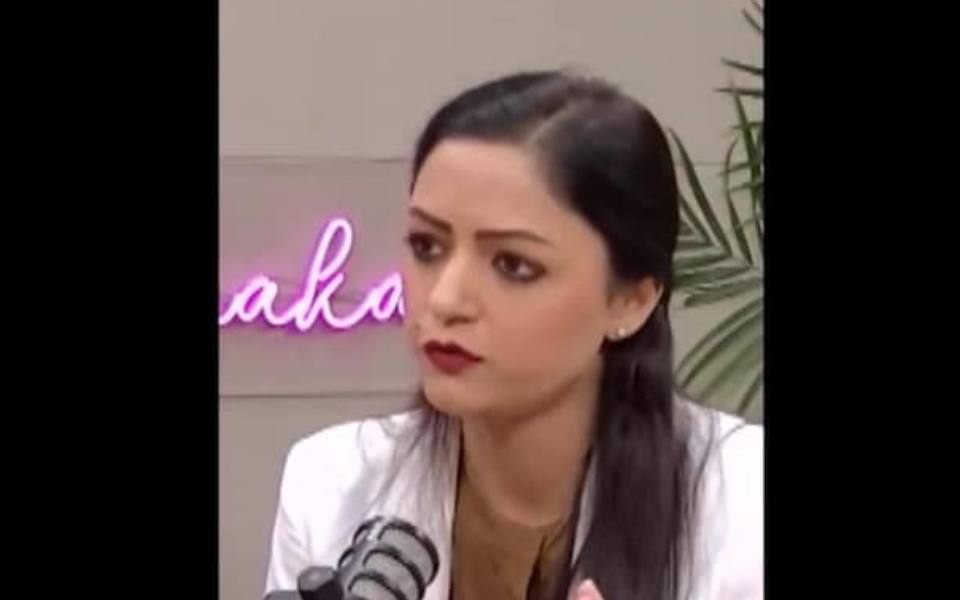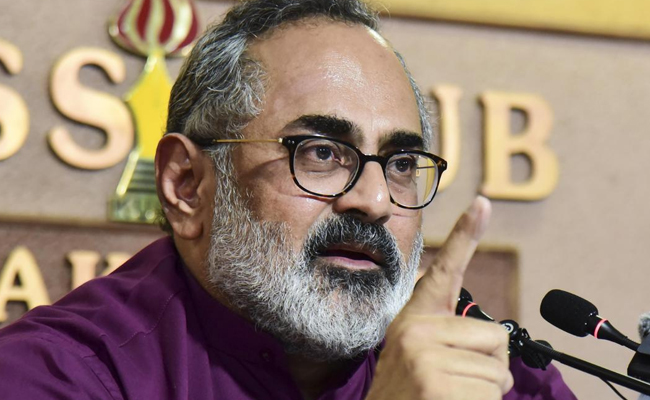New Delhi: Former Jawaharlal Nehru University (JNU) student leader Shehla Rashid expressed a shift in her perspective on Kashmir, stating that the region is not comparable to Gaza. She acknowledged changes in Jammu and Kashmir and credited Prime Minister Narendra Modi and Union Home Minister Amit Shah's policies for bringing about a bloodless political solution.
In an interview with news agency ANI, Rashid admitted to sympathizing with stone pelters in 2010 but indicated a change in her views. She emphasized that the current situation in Kashmir is distinct from Gaza, citing a reduction in protests and sporadic incidents of insurgency and infiltrations.
In 2010, yes," Shehla Rashid said. "But today, when I see it, I am much more grateful for today's situation. Kashmir is not Gaza, it has become clear that Kashmir is not Gaza, because Kashmir was just involved in these back-and-forth protests and sporadic incidents of insurgency and infiltrations," she said.
Rashid praised the present government, especially Modi and Shah, for breaking the ice and achieving a political solution without bloodshed. She previously commended the government's efforts to improve the human rights situation in Jammu and Kashmir.
"All of those things, somebody needed to break the ice, and for that, I would like to credit the present government, especially the Prime Minister and the Home Minister."
The former student leader acknowledged her struggles at JNU, particularly after the sedition charges against former research scholar Umar Khalid and then JNU Student Union president Kanhaiya Kumar in 2017. Rashid highlighted the backlash against JNU and emphasized that certain slogans, such as 'Bharat Tere Tukde Honge' and 'Laal Salam,' were never raised at the university.
Umar Khalid, charged with sedition and criminal conspiracy, was arrested nearly two years ago in connection with the northeast Delhi riots. He faces charges under the Unlawful Activities Prevention Act (UAPA) for his alleged role in the incident.
Sharing the interview on social media, Rashid captioned it, “What caused my change of heart is the realisation that the Hon'ble PM @narendramodi is a selfless man who is taking radical decisions to transform India. He has braved intense criticism but remained steadfast to his vision of inclusive development that leaves no one behind.”
This was not the first time Rashid praised the situation in Jammu and Kashmir.
Earlier, in August this year, Rashid, who has been a vocal critic of the Modi government's decision to revoke Jammu and Kashmir's autonomous status on August 5, 2019, as well as its subsequent division into two Union territories, praised the Narendra Modi-led government at the Centre and the Lieutenant Governor of Jammu and Kashmir for their efforts in improving the human rights situation in the Valley.
What caused my change of heart is the realisation that the Hon'ble PM @narendramodi is a selfless man who is taking radical decisions to transform India. He has braved intense criticism but remained steadfast to his vision of inclusive development that leaves no one behind. pic.twitter.com/s06cA2Q2ua
— Shehla Rashid (@Shehla_Rashid) November 16, 2023
Let the Truth be known. If you read VB and like VB, please be a VB Supporter and Help us deliver the Truth to one and all.
Judge cites denial of home to Muslim girl, opposition to Dalit women cooking mid-day meals
Hyderabad, February 23, 2026: Supreme Court judge Justice Ujjal Bhuyan has said that despite repeated affirmations of constitutional morality by courts, deep societal faultlines rooted in caste and religious discrimination continue to shape everyday realities in India.
Speaking at a seminar on “Constitutional Morality and the Role of District Judiciary” organised by the Telangana Judges Association and the Telangana State Judicial Academy in Hyderabad, Justice Bhuyan reflected on the gap between constitutional ideals and social practices.
He cited a recent instance involving his daughter’s friend, a PhD scholar at a private university in Noida, who was denied accommodation in South Delhi after her surname revealed her Muslim identity. According to Justice Bhuyan, the landlady bluntly informed her that no accommodation was available once her religious background became known.
In another example from Odisha, he referred to resistance by some parents to the government’s mid-day meal programme because the food was prepared by Dalit women employed as cooks. He noted that some parents had objected aggressively and refused to allow their children to consume meals cooked by members of the Scheduled Caste community.
Describing these incidents as “the tip of the iceberg,” Justice Bhuyan said they reveal how far society remains from the benchmark of constitutional morality even 75 years into the Republic. He observed that while the Constitution lays down standards of equality and dignity, the morality practised within homes and communities often diverges sharply from those values.
He emphasised that constitutional morality requires governance through the rule of law rather than the rule of popular opinion. Referring to the evolution of the doctrine through judicial decisions, he cited Naz Foundation v Union of India, in which the Delhi High Court read down Section 377 of the Indian Penal Code, holding that popular morality cannot restrict fundamental rights under Article 21. Though the judgment was later overturned in Suresh Kumar Koushal v Naz Foundation, the Supreme Court ultimately restored and expanded the principle in Navtej Singh Johar v Union of India, affirming that constitutional morality must prevail over majoritarian views.
“In our constitutional scheme, it is the constitutionality of the issue before the court that is relevant, not the dominant or popular view,” he said.
Justice Bhuyan also addressed the functioning of the district judiciary, underlining that trial courts are the first point of contact for most litigants and form the foundation of the justice delivery system. He stressed that due importance must be given to the recording of evidence and adjudication of bail matters.
Highlighting the role of High Courts, he said their supervisory jurisdiction under Article 227 of the Constitution is intended as a shield to correct grave jurisdictional errors, not as a mechanism to substitute the discretion or factual appreciation of trial judges.
He recalled that several distinguished judges, including Justice H R Khanna, Justice A M Ahmadi, and Justice Fathima Beevi, began their careers in the district judiciary.
On representation within the judicial system, Justice Bhuyan noted that Telangana has made significant strides in gender inclusion. Out of a sanctioned strength of 655 judicial officers in the Telangana Judicial Service, 478 are currently serving, of whom 283 are women, exceeding 50 per cent representation. He added that members of Scheduled Castes, Scheduled Tribes, minority communities, and persons with disabilities are also represented in the state’s judiciary.
He observed that greater representation of women, marginalised communities, persons with disabilities, and sexual minorities would help make the judiciary more inclusive and reflective of India’s diversity. “The judiciary must represent all the colours of the rainbow and become a rainbow institution,” he said.
Justice Bhuyan also referred to the recent restoration by the Supreme Court of the requirement of a minimum three years of practice at the Bar for entry-level judicial posts. While acknowledging that the requirement ensures practical exposure, he cautioned that its impact on women aspirants, especially those from rural or small-town backgrounds facing social and financial constraints, would need to be carefully observed over time.
Concluding his address, he reiterated that the justice system must strive to bridge the gap between constitutional ideals and lived realities, ensuring that the rule of law remains paramount.




